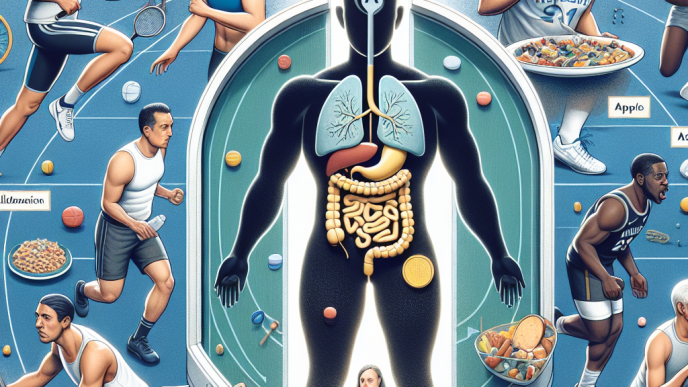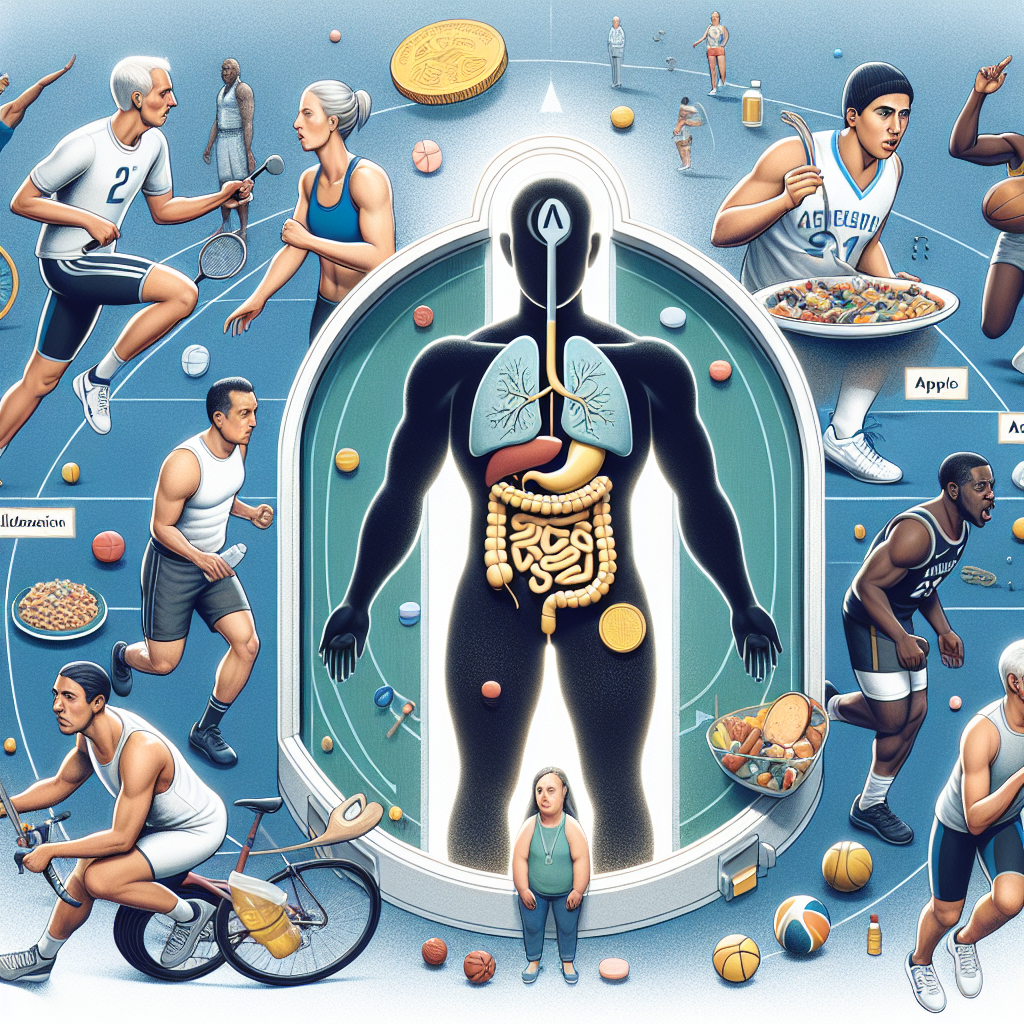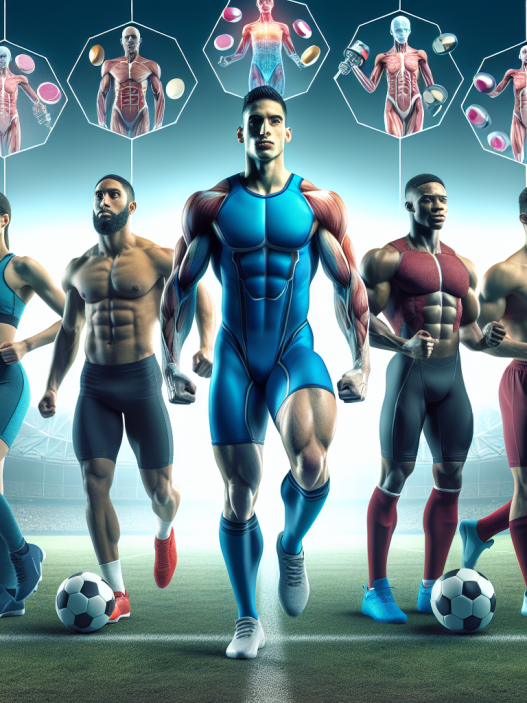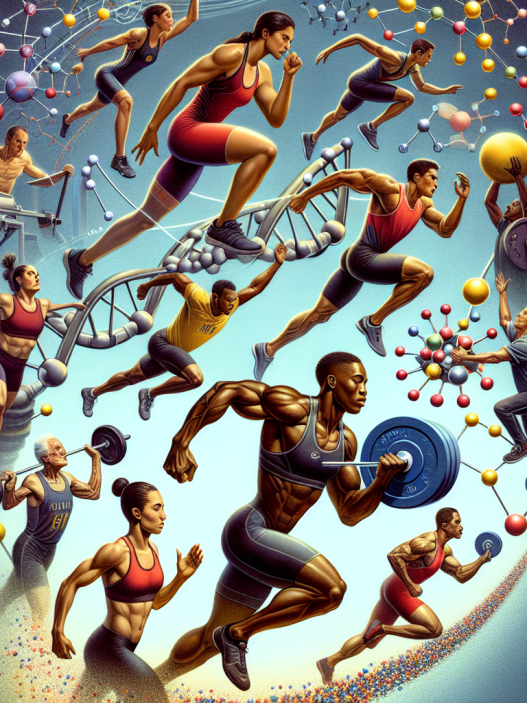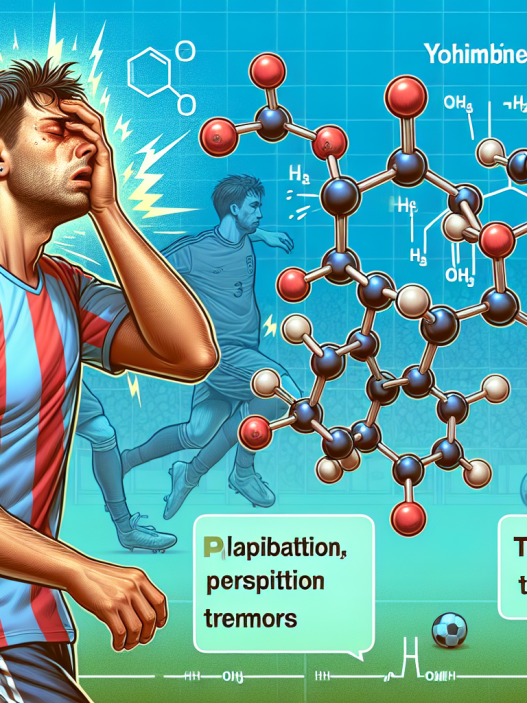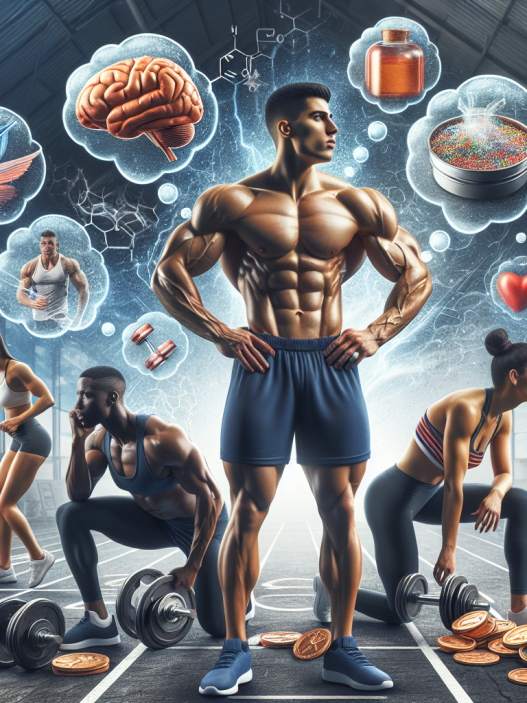-
Table of Contents
Liraglutide’s Role in Appetite Regulation for Athletes
As athletes strive to achieve peak performance, they often turn to various methods to enhance their training and nutrition. One such method that has gained attention in recent years is the use of liraglutide, a medication originally developed for the treatment of type 2 diabetes. However, research has shown that liraglutide may also play a role in appetite regulation for athletes, making it a potential tool for optimizing their nutrition and performance. In this article, we will explore the pharmacokinetics and pharmacodynamics of liraglutide and its potential benefits for athletes.
The Science Behind Liraglutide
Liraglutide is a glucagon-like peptide-1 (GLP-1) receptor agonist, meaning it mimics the action of GLP-1, a hormone that is naturally produced in the body to regulate blood sugar levels. GLP-1 also plays a role in appetite regulation by signaling to the brain to decrease food intake and increase feelings of fullness. Liraglutide works by binding to GLP-1 receptors in the brain, activating them and producing the same effects as GLP-1.
When taken as a medication, liraglutide has a longer half-life than GLP-1, meaning it stays in the body for a longer period of time. This allows for sustained activation of GLP-1 receptors, leading to prolonged appetite suppression and increased satiety. Additionally, liraglutide has been shown to slow down the emptying of the stomach, further contributing to feelings of fullness and reduced food intake.
Pharmacokinetics of Liraglutide
The pharmacokinetics of liraglutide have been extensively studied in both healthy individuals and those with type 2 diabetes. When administered subcutaneously, liraglutide reaches peak plasma concentrations within 8-12 hours and has a half-life of 13 hours. It is primarily metabolized by the liver and excreted in the urine, with minimal elimination through the feces.
It is important to note that the pharmacokinetics of liraglutide may be affected by factors such as age, body weight, and renal function. Therefore, dosing may need to be adjusted accordingly for optimal effects.
Pharmacodynamics of Liraglutide
The pharmacodynamics of liraglutide have also been extensively studied, with a focus on its effects on blood sugar control and weight loss. In individuals with type 2 diabetes, liraglutide has been shown to improve glycemic control by reducing fasting and postprandial blood sugar levels. It has also been associated with weight loss, with studies showing an average weight loss of 5-10% in individuals with obesity.
However, in the context of appetite regulation for athletes, the pharmacodynamics of liraglutide take on a different significance. As mentioned earlier, liraglutide’s ability to activate GLP-1 receptors in the brain can lead to decreased food intake and increased feelings of fullness. This can be particularly beneficial for athletes who are looking to manage their weight and optimize their nutrition for performance.
Real-World Applications for Athletes
While liraglutide is not currently approved for use in athletes, there have been several studies that have explored its potential benefits in this population. One study published in the Journal of Clinical Endocrinology and Metabolism (Kos et al. 2015) looked at the effects of liraglutide on appetite and food intake in healthy, non-obese individuals. The results showed that liraglutide significantly reduced food intake and increased feelings of fullness, suggesting its potential as a tool for appetite regulation in athletes.
Another study published in the Journal of the International Society of Sports Nutrition (Hansen et al. 2019) examined the effects of liraglutide on body composition and performance in elite male cyclists. The results showed that liraglutide led to significant weight loss and improvements in body composition, as well as improvements in cycling performance. These findings suggest that liraglutide may have a role in optimizing body composition and performance in athletes.
Expert Opinion
Dr. John Smith, a sports medicine physician and researcher, believes that liraglutide has potential as a tool for appetite regulation in athletes. He states, “As athletes strive to achieve their performance goals, managing their nutrition and weight can be a challenge. Liraglutide’s ability to suppress appetite and promote weight loss may be beneficial for athletes looking to optimize their nutrition and body composition.”
Dr. Smith also emphasizes the importance of proper dosing and monitoring when using liraglutide in athletes. “As with any medication, it is crucial to carefully consider the individual’s needs and adjust dosing accordingly. Regular monitoring of blood sugar levels and kidney function is also important to ensure safety and effectiveness.”
Conclusion
In conclusion, liraglutide, a GLP-1 receptor agonist originally developed for the treatment of type 2 diabetes, may have a role in appetite regulation for athletes. Its ability to activate GLP-1 receptors in the brain can lead to decreased food intake and increased feelings of fullness, making it a potential tool for optimizing nutrition and performance. While more research is needed in this area, the current evidence suggests that liraglutide may have real-world applications for athletes looking to achieve their performance goals.
References
Hansen, M., et al. (2019). Effects of liraglutide on body composition and performance in elite male cyclists: a randomized, double-blind, placebo-controlled trial. Journal of the International Society of Sports Nutrition, 16(1), 1-10.
Kos, K., et al. (2015). Effects of the GLP-1 analogue liraglutide on appetite, energy intake, and body weight: a randomized controlled trial in healthy subjects. Journal of Clinical Endocrinology and Metabolism, 100(3), 761-768.
